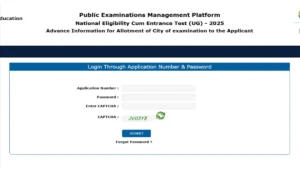Table of Contents
Words with similar ending sounds are said to be Rhyming words in English [Example: Cat – Sat – Bat). Rhyming words are those that make sense when employed in a context and rhyme. The Usage of rhyming words in English makes it easier for learners to retain vocabulary. Rhyming words are those that have the same final sound, and it can also be said that comparable sounds are repeated. In this article, we will be going to learn about the Rhyming words meanings in English as well as in Hindi with List of words that rhyme
What is Rhyming Words
Rhyming words: As we all know, rhyming is the usage of words that have a similar sound at the end. A similar-sounding syllable appears at the conclusion of these words. Let’s understand the example, “Soon and balloon”, both of which finish with the sound “oon,” are an example of a pair of similar words, as a result, we can say it Rhyming words.In this article, let’s look at some more similar words in English. Go on reading!
Rhyming Words: What is Rhyme?
The words that end with the same ending sound. are Called Rhyming words. Before knowing what are rhyming words, First under about the Rhyme. A rhyme is a pattern of repeated sounds (often the same phonemes) in the stressed final syllable and any succeeding syllables of two or more words. The last place of lines in poems or songs is typically where this form of flawless rhyming is purposefully used for a musical or artistic effect. In a broader sense, a rhyme may also apply to several kinds of comparable sounds that are close to the ends of two or more syllables. Words with the same last sound are said to rhyme. It is simply the recurrence of similar sounds.
For example:
- ask- mask, flask
- pink- ink, sink
- cat- bat, sat
The above-given examples are Rhyming words.
Words with similar ending sounds are said to rhyme. It can be described more simply as the repeating of similar sounds.
Rhyming Word: Difference b/w Rhyme and Rhythm
Check here Rhyme and Rhythm Differences here. If you’re learning English, you’ve probably heard the terms rhyme and rhythm quite a bit. If you read and write poetry, you undoubtedly understand what these terms signify and how they might benefit your writing. Let’s first examine what each of these phrases means before examining some possible applications.
The Oxford Learner’s Dictionary defines rhyme as “the use of words in a poetry or song that have the same sound, especially at the ends of lines,” or “a word that has the same sound or ends with the same sound as another word.” Contrarily, a “strong regular repetitive pattern of sounds or motions” is what is meant by the term “rhythm.”
Uses of Rhyming Words
Uses of rhyming words are given below:
- Learn with Fun: Both the learner and the teacher may find learning to be a challenging endeavour. But if you use rhymes, poems, and songs, you can make studying and teaching enjoyable. These words serve to break up the monotony and spark people’s curiosity in learning more.
- Easy to remember: You remember the poem if it contains rhyming words rather than non-rhyme words.
- Enhance the vocabulary: Rhyming words are essential for gaining knowledge of the way to write well. It teaches us that words that sound similar frequently represent equal letters at the end. Besides, it enhances our vocabulary and at the same time as making studying spelling easy.
- Improves the beauty of language: Rhymes enhance our skills to explore the beauty of language. The way two words can be strung together to give meaning and how those same two words create a different meaning when combined in a different way. It helps us understand how we can play with words and make studying fun.
Rhyming Words Types
Rhyming words Types are given here. There are different types of rhyming words given below:
1. End Rhymes (blue/shoe)
Words with ending rhyme have the same final vowel sound and following consonant sound(s). For example, if you enter the word brother under this option, Rhymer retrieves a list of words with the ending sound er (e.g., father, mother, author, etc). Other examples of ending rhyme include:
- bat/cat
- rate/eight
This option lets you easily find exact rhymes (words in which the final vowel and consonant sounds are the same).
2. Last-Syllable Rhymes (timber/harbor)
Words with last-syllable rhyme have the same sounds following the last syllable boundary (commonly a consonant, a vowel, and another consonant). For example, if you enter the word explain using this option, Rhymer retrieves a list of words with the last syllable sound plain (e.g., aquaplane, biplane, plane, and plain). Other examples of last-syllable rhyme include:
- humanity/zesty
- threw/breakthrough
- pleat/complete
3. Double Rhymes (conviction/prediction)
Words with double rhyme have the same vowel sound in the second-to-last syllable and all following sounds. For example, if you enter the word soaring using this option, Rhymer retrieves a list of words with the sound oring (e.g., adoring, exploring, pouring, scoring, touring, and restoring). Other examples of double rhyme include:
- walking/talking
- humming/coming
- navigator/waiter
This option lets you find feminine rhymes (rhyming words with an unstressed final syllable). Words entered using this option must have at least two syllables.
4. Triple Rhymes (transportation/dissertation)
Words with triple rhyme have the same vowel sound in the third-to-last syllable and all following sounds. For example, if you enter the word combination using this option, Rhymer retrieves a list of words with the sound anation (e.g., explanation, coronation, destination, and imagination). Other examples of triple rhyme include:
- antelope/cantaloupe
- greenery/scenery
- mightily/vitally
Words entered with this option must have at least three syllables.
5. Beginning Rhymes (physics/fizzle)
Words with beginning rhyme have the same initial consonant sound(s) and the same first vowel sound. For example, if you enter the word plantation using this option, Rhymer retrieves a list of words with the sound pla (e.g., plan, plaque, plaster, and plateau). Other examples of beginning rhyme include:
- scenery/cedar
- cat/kangaroo
- table/tailor
This option lets you find words with initial alliteration (the repetition of initial consonant sounds), initial assonance (the repetition of initial vowel sounds), and front rhyme (the succession of beginning sounds of words).
6. First-Syllable Rhymes (carrot/caring)
Words with first-syllable rhyme have the same sounds preceding the first syllable break. For example, if you enter the word explanation using this option, Rhymer retrieves a list of words with the sound ex (e.g., excavate, exhale, expert, and extra). Other examples of first-syllable rhyme include:
- pantaloons/pantomimes
- highlight/hydrant
- tulip/twosome
Rhyming Words List
A list of Rhyming words is given below. check some of the important Rhyming words here.
- Cat – Sat – Bat
- Ball – Fall – Tall
- Right – Kite – Height
- Owl – Towel – Growl
- Bore – Four – Roar
- Rock – Chalk – Hawk
- One – Gun – Won
- Face – Place – Race
- Boat – Coat – Float
- All – Ball – Call
- Cave – Gave – Save
- Jump – Bump – Lump
- Day – Stay – Hay
- Hole – Mole – Stole
- Hot – Not – Cot
- Cook – Look – Hook
- Seed – Feed – Weed
- Map – Sap – Lap
- Skip – Drip – Lip
- Wit – Hit – Sit
- Love – Dove – Glove
- Bird – Heard
- Red – Bed – Said
- Happy – Nappy – Sappy
- Well – Sell – Tell
- Hill – Will – Kill
- Hide – Tide – Wide
- Sing – Wing – King
- Cow – How – Now
- Kick – Pick – Lick
- Ad – Add
- Blew – Blue
- Bear – Bare
- Days – Daze
- Flee – Flea
- Read – Red
- Write – Right
- Made – Maid
- Peace – Piece
- Pail – Pale
- Reign – Rain
- Very – Vary
- Wool – Fool
- Rig – Dig
- Pet – Met
- Soon – Moon
- Hop – Pop
- Make – Cake
- Hero – Zero
- Change – Range
- Caller – Taller
- Bridge – Fridge
- Sheet – Feet
- Pen – Men
- Win – Bin
- Sand – Band
- Bag – Rag
- Moat – Goat
- Dish – Wish
- Main – Pain
- Meet – Greet
- Seven – Heaven
- Nine – Wine
- Ten – Hen
- Four-Door
- play- day
- sky- high
- tree- free
Note: Some rhyming words can be homophones also.
Rhyming Words in Hindi
जैसा कि हम सभी जानते हैं, राइमिंग वर्ड का उपयोग है जिनके अंत में समान ध्वनि होती है। इन शब्दों के अंत में एक समान लगने वाला शब्दांश दिखाई देता है। “सून एंड बैलून”, जो दोनों “ऊन” ध्वनि में समाप्त होते हैं, समान शब्दों की एक जोड़ी का एक उदाहरण हैं।
यहाँ देखें लय और ताल अंतर यहाँ। यदि आप अंग्रेजी सीख रहे हैं, तो आपने शायद तुकबंदी और लय शब्द काफी कुछ सुने होंगे। यदि आप कविता पढ़ते और लिखते हैं, तो आप निस्संदेह समझते हैं कि इन शब्दों का क्या अर्थ है और वे आपके लेखन को कैसे लाभ पहुंचा सकते हैं। आइए पहले जांच करें कि कुछ संभावित अनुप्रयोगों की जांच करने से पहले इनमें से प्रत्येक वाक्यांश का क्या अर्थ है।
Rhymes Meaning in Hindi
ऑक्सफोर्ड लर्नर्स डिक्शनरी ने कविता को “एक कविता या गीत में शब्दों के उपयोग के रूप में परिभाषित किया है, जिसमें एक ही ध्वनि है, विशेष रूप से पंक्तियों के सिरों पर,” या “एक शब्द जिसमें एक ही ध्वनि है या एक ही ध्वनि के साथ समाप्त होता है जैसे कि दूसरे शब्द। ” इसके विपरीत, “ध्वनि या गति का एक मजबूत नियमित दोहराव वाला पैटर्न” शब्द “लय” का अर्थ है।
Rhymes Words Meaning in Hindi
राइमिंग वर्ड शब्दों के प्रयोग नीचे दिए गए हैं:
मज़ा के साथ सीखें: शिक्षार्थी और शिक्षक दोनों को सीखना एक चुनौतीपूर्ण प्रयास हो सकता है। लेकिन अगर आप तुकबंदी, कविता और गीतों का उपयोग करते हैं, तो आप अध्ययन और शिक्षण को सुखद बना सकते हैं। ये शब्द एकरसता को तोड़ने का काम करते हैं और अधिक सीखने में लोगों की जिज्ञासा को जगाते हैं।
याद रखने में आसान: आप कविता को तब याद करते हैं जब इसमें तुकबंदी वाले शब्दों के बजाय तुकबंदी वाले शब्द हों।
शब्दावली बढ़ाएं: अच्छी तरह से लिखने के तरीके का ज्ञान प्राप्त करने के लिए तुकबंदी शब्द आवश्यक हैं। यह हमें सिखाता है कि जो शब्द एक जैसे लगते हैं वे अंत में समान अक्षरों का प्रतिनिधित्व करते हैं। इसके अलावा, यह हमारी शब्दावली को बढ़ाता है और साथ ही साथ वर्तनी का अध्ययन करना आसान बनाता है।
भाषा की सुंदरता में सुधार: भाषा की सुंदरता का पता लगाने के लिए तुकबंदी हमारे कौशल को बढ़ाती है। जिस तरह से दो शब्दों को अर्थ देने के लिए एक साथ पिरोया जा सकता है और कैसे वही दो शब्द एक अलग तरीके से संयुक्त होने पर एक अलग अर्थ बनाते हैं। इससे हमें यह समझने में मदद मिलती है कि हम शब्दों के साथ कैसे खेल सकते हैं और पढ़ाई को मजेदार बना सकते हैं।
अंत्यानुप्रासवाला शब्द प्रकार
Found this article helpful?
Let’s connect via chat or call our senior expert counselor at +91-9625869989 to learn more about the different streams and options available. We would love it if we could add some of your insights. If you have a definite goal of scoring the highest marks, then you can resolve your doubts via our app/quizzes and youtube class assistance (https://www.youtube.com/c/Adda247School)



 NEET City Intimation Slip 2025 Available...
NEET City Intimation Slip 2025 Available...
 Manabadi TS SSC Results 2025 OUT, Check ...
Manabadi TS SSC Results 2025 OUT, Check ...
 ICSE 10th Result 2025 Out, CISCE Class 1...
ICSE 10th Result 2025 Out, CISCE Class 1...










